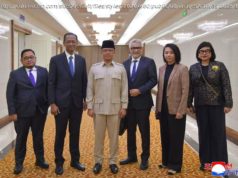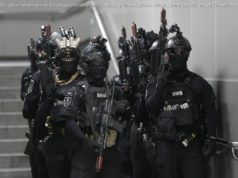Array
Decades of achievement led Yoon Suk Yeol to the pinnacle of political power in South Korea, but his legacy may now rest on a single, baffling decision to send out troops under martial law over vague claims that one of Asia’s leading democracies was under threat.
Was there any clue in Yoon’s background that this was coming?
Yoon, a staunch conservative and longtime prosecutor, went from political novice to president of South Korea in 2022, ending five years of liberal rule that saw failed efforts to resolve the North Korean nuclear crisis and a slackening economy.
But his time in office has been marked by near-constant friction with an opposition-controlled parliament, threats of annihilation from North Korea and a series of scandals involving him and his wife. Observers say he has long taken criticism personally and relies on the advice of hardcore loyalists, and that he makes impulsive decisions.
READ: What we know about South Korea’s martial law
As he faces impeachment by parliament, no one thing explains his attempt to shut down the mechanisms of a democratic nation over his still-unexplained claim that “anti-state forces” were acting under the influence of North Korea.
But there are strands in Yoon’s background, and especially in the intense acrimony with the liberal opposition and his hardline standoff with North Korea, that help illuminate what could turn out to be the defining moment of his presidency.
A turbulent rise to top prosecutor
Despite his 2 1/2 years as president, Yoon’s career has been overwhelmingly about the law, not politics.
Yoon, 63, was born in Seoul to two professors, and went to prestigious Seoul National University, where he studied law.
A major moment, according to Yoon, happened in 1980 when he played the role of a judge in a mock trial of then-dictator Chun Doo-hwan, who had staged a military coup the previous year, and sentenced him to life imprisonment. In the aftermath, Yoon had to flee to the countryside as Chun’s military extended martial law and placed troops and armored vehicles at the university.
Yoon returned to the capital and eventually began a career as a state prosecutor that would last nearly three decades, building an image as strong-minded and uncompromising.






